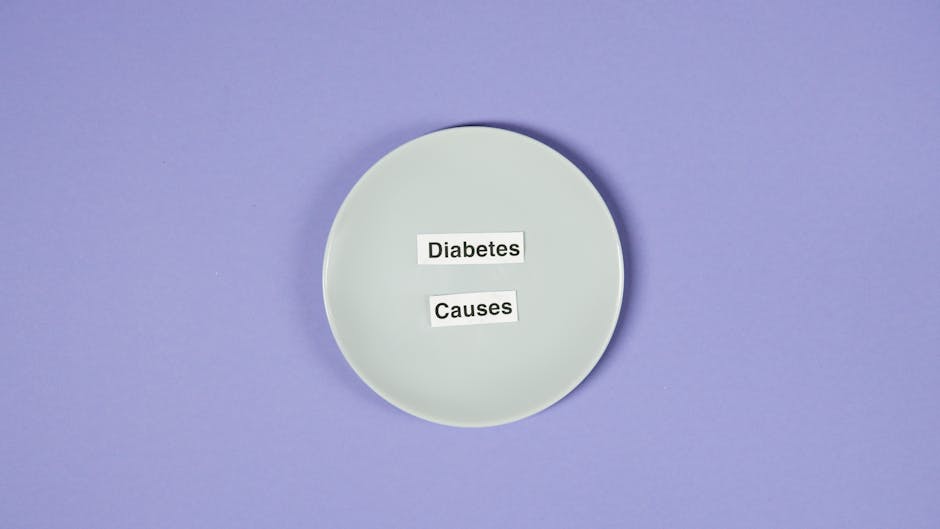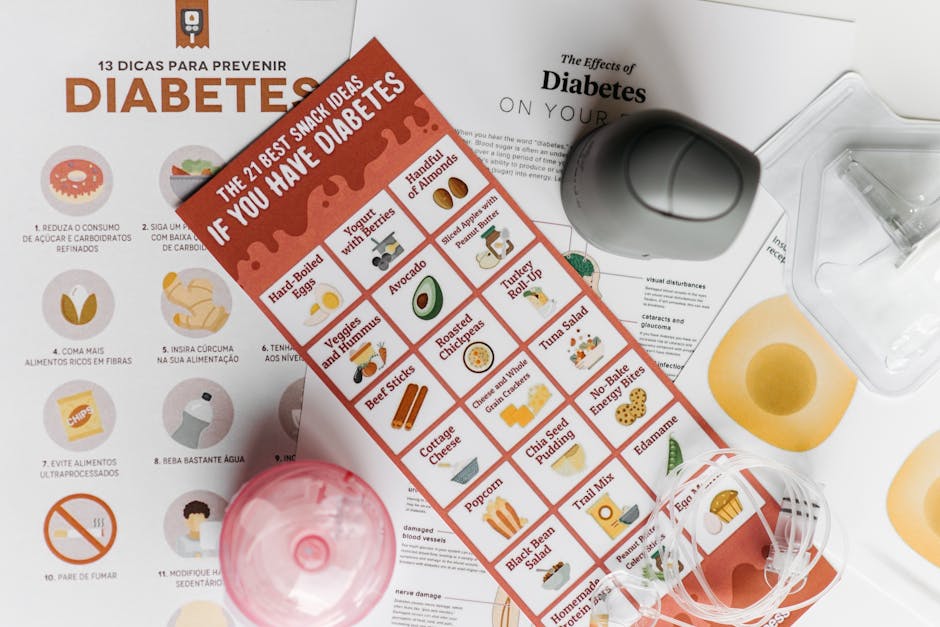Unlocking Gut Health: A Definitive Guide to the Leaky Gut Diet Plan
Understanding and addressing leaky gut, or increased intestinal permeability, is paramount for overall health, impacting everything from digestive symptoms to systemic inflammation. A comprehensive leaky gut diet plan focuses on repairing the intestinal barrier, rebalancing gut bacteria, and reducing inflammation. This isn't just about avoiding certain foods; it's a holistic approach to nutrition that prioritizes nutrient-dense whole foods to support gut health and alleviate symptoms associated with leaky gut syndrome. Effectively managing a hyperpermeable gut requires consistent dietary changes and an awareness of how various foods interact with your unique microbiome, promoting healing and preventing further damage from undigested food particles and toxins entering the bloodstream. For more insights on the latest developments in health and wellness, including advanced nutritional strategies, you might find valuable information at cutting-edge health and wellness articles.

Close-up image of diverse nutrient-rich foods beneficial for gut healing, arranged aesthetically on a wooden table
Understanding Leaky Gut Syndrome: Why Your Diet Matters for Gut Health
Leaky gut syndrome, also known as intestinal hyperpermeability, occurs when the tight junctions in the intestinal lining become compromised, allowing toxins, undigested food particles, and harmful bacteria to leak into the bloodstream. This infiltration triggers an immune response, leading to chronic inflammation and a cascade of health problems. The gut health of an individual is intrinsically linked to their diet; what we consume directly influences the integrity of our gut barrier and the composition of our gut microbiome. Adopting a specific leaky gut diet is not merely a trend but a foundational step in addressing the root causes of inflammation and restoring the gut barrier function. This dietary intervention aims to reduce the burden on the digestive tract, allowing the intestinal lining to repair itself and re-establish a healthy balance of beneficial gut bacteria.

Microscopic illustration showing a compromised intestinal barrier with substances leaking into the bloodstream
Essential Leaky Gut Foods: What to Embrace and Avoid for Optimal Nutrition
To effectively combat leaky gut, it’s crucial to understand which foods support healing and which exacerbate the condition. A healing leaky gut diet emphasizes unprocessed foods, rich in vitamins and minerals, while meticulously avoiding known inflammatory agents. Foods to embrace include bone broth, fermented foods like sauerkraut, probiotic-rich yogurts (if tolerated), and a wide array of fruits and vegetables, particularly leafy greens and berries, which provide essential prebiotics for beneficial gut bacteria. Conversely, highly processed food, refined carbohydrates, industrial fats, and common allergens such as gluten and dairy are often detrimental. These foods can further irritate the intestinal lining, perpetuate inflammation, and contribute to an imbalanced microbiome, hindering the recovery process. Making informed choices about your nutrition is the cornerstone of managing leaky gut syndrome.
Visual guide contrasting gut-healing foods like leafy greens with inflammatory items like processed snacks
The Power of Diet: How the Best Diet Can Heal Leaky Gut Causes
The right diet possesses immense power to mitigate the causes of leaky gut. By eliminating inflammatory triggers and introducing healing foods, we can significantly reduce intestinal permeability and support the repair of the gut barrier. A well-structured leaky gut diet focuses on anti-inflammatory ingredients that nourish the gut microbiota, promoting the growth of beneficial bacteria that produce short-chain fatty acids, crucial for gut health. This approach helps to seal the tight junctions and prevent the entry of toxins into the bloodstream. Many individuals suffering from chronic conditions like autoimmune disorders, IBS, and other gastrointestinal diseases have reported significant improvements by adopting such a diet, demonstrating its efficacy in addressing systemic inflammation and improving overall health outcomes.
Chart illustrating the positive impact of a healthy diet on gut barrier integrity and reduced inflammation
Current State of Leaky Gut Research: New Findings and Research Explained
Contemporary research continues to shed light on the intricate mechanisms behind leaky gut and its far-reaching implications for health. Scientists are exploring the specific strains of bacteria that influence intestinal permeability and how various dietary components either strengthen or weaken the gut barrier. Emerging findings emphasize the role of specific prebiotics and probiotics in modulating the gut microbiome to improve gut health, offering new therapeutic avenues beyond conventional medicine. Understanding these advancements is vital for anyone grappling with symptoms of leaky gut syndrome or related autoimmune diseases, as it informs the most effective dietary and lifestyle interventions. The ongoing study of the microbiome provides a deeper understanding of how an imbalanced gut can contribute to various chronic conditions, underscoring the importance of a targeted leaky gut diet plan.
Infographic showcasing recent breakthroughs in gut microbiome research and its connection to leaky gut
Navigating Food Avoidance: Critical Steps for a Successful Leaky Gut Diet
Successfully navigating a leaky gut diet often involves a period of meticulous food avoidance, commonly known as an elimination diet. This process is critical for identifying specific food sensitivities that contribute to increased intestinal permeability and inflammation. It typically begins with removing common inflammatory foods like gluten, dairy, soy, corn, and sometimes even nightshades, for several weeks. Following the elimination phase, foods are reintroduced one by one to observe any adverse reactions, helping to pinpoint individual triggers. This systematic approach is invaluable for personalizing the leaky gut diet plan, ensuring that the foods consumed actively support gut health and do not exacerbate symptoms. Keeping a detailed food journal during this period can provide objective data on how different foods affect digestive symptoms and overall well-being.
Calendar with marked dates for elimination and reintroduction phases of a leaky gut diet
Crafting Your Personalized Leaky Gut Diet Plan: Strategies for Lasting Wellness
Developing a personalized leaky gut diet plan is fundamental for achieving lasting wellness and effectively managing intestinal permeability. This isn't a one-size-fits-all approach; it requires a deep understanding of your body's unique responses to different foods and a commitment to sustained dietary changes. The goal is to create a sustainable eating pattern that reduces inflammation, strengthens the gut barrier, and fosters a diverse and healthy gut microbiome. Integrating a variety of nutrient-dense whole foods, rich in fiber and beneficial bacteria, is crucial for supporting digestive health. Regular assessment of your progress and adjustments to your diet based on how your body responds will ensure the plan remains effective in healing leaky gut and improving overall vitality.

A person journaling their food intake and symptoms to personalize their leaky gut diet plan
Essential Leaky Gut Foods: What to Embrace and Avoid for Optimal Nutrition
Demystifying leaky gut syndrome involves understanding the complex interplay between your diet, gut bacteria, and overall health. When the intestinal lining, a single-cell layer, becomes compromised, it allows substances to pass into the bloodstream that shouldn't, leading to systemic inflammation. This phenomenon of intestinal permeability is often exacerbated by modern dietary habits, including excessive consumption of processed food, refined carbohydrates, and industrial fats, all of which negatively impact the delicate balance of the gut microbiome. Addressing leaky gut effectively requires a targeted dietary intervention that prioritizes foods known to repair the intestinal barrier and support a healthy balance of gut bacteria, thereby mitigating inflammation and promoting optimal gut health.
Diagram illustrating the tight junctions in a healthy gut versus a permeable or leaky gut lining
Understanding the Leaky Gut Phenomenon: Key Concepts for Healing
The leaky gut phenomenon, also termed intestinal hyperpermeability, refers to a condition where the intestinal barrier becomes porous, allowing substances like toxins, undigested food, and pathogenic bacteria to cross into the bloodstream. This triggers a systemic immune response, leading to chronic inflammation and a multitude of digestive symptoms and other health problems. Key concepts for healing involve not only eliminating dietary triggers but also actively consuming foods that support the repair of the gut lining and foster a balanced gut microbiome. Strategies include a leaky gut diet focused on nutrient-dense foods, the inclusion of probiotics to restore beneficial bacteria, and addressing underlying factors that contribute to gut dysbiosis and inflammation.
Scientific illustration depicting toxins and bacteria passing through a compromised intestinal barrier
Deciphering Gut Permeability: Important Factors in Leaky Gut Nutrition
Deciphering gut permeability involves understanding the various factors that can weaken the intestinal barrier, which is central to managing leaky gut. Dietary choices play a predominant role; for instance, high sugar intake, gluten sensitivity, and certain food additives can increase intestinal permeability. Additionally, chronic stress, infections, and certain medications can disrupt the delicate balance of gut bacteria, leading to dysbiosis and further compromise the gut barrier function. Therefore, a comprehensive leaky gut diet must address these multifaceted influences, focusing on reducing inflammation and supporting the healing of the intestinal lining. Incorporating a diverse range of plant-based diet components and ensuring adequate absorption of nutrients are critical steps in restoring gut health.

Flowchart detailing external and internal factors contributing to increased gut permeability
Essential Components of Gut Health: Understanding Probiotics Work
Essential components of gut health, particularly the role of probiotics, are critical for addressing leaky gut. Probiotics are live beneficial bacteria that, when consumed in adequate amounts, confer a health benefit to the host. They work by colonizing the gut, competing with harmful bacteria, and producing beneficial compounds like short-chain fatty acids that nourish the intestinal lining and strengthen the gut barrier. Integrating probiotic-rich foods such as fermented foods or high-quality probiotic supplements into a leaky gut diet can significantly improve the balance of the gut microbiome, reduce inflammation, and enhance digestive health. These beneficial bacteria contribute to a robust intestinal barrier, preventing the leakage of toxins and undigested food particles into the bloodstream, thereby supporting overall wellness and mitigating the symptoms of leaky gut.
Microscopic view of beneficial bacteria (probiotics) working within the gut lining to improve gut health
Analyzing Your Gut: Critical Elements for a Comprehensive Gut Test
Analyzing your gut through comprehensive testing is a critical step in diagnosing and effectively treating leaky gut. A thorough gut test can identify imbalances in gut bacteria, detect the presence of pathogens, assess markers of inflammation, and even provide insights into intestinal permeability. Key elements of such tests often include stool analysis, which can reveal the diversity of the gut microbiota, enzyme function, and immune responses within the gut. This diagnostic information is invaluable for tailoring a personalized leaky gut diet and supplementation plan, moving beyond generalized recommendations to address the specific needs of an individual's gut microbiome. For those interested in understanding the specifics of optimizing athletic performance through diet and training, visiting expert insights on sports nutrition can offer complementary perspectives on maintaining peak physical and digestive health.
A person reviewing results from a comprehensive gut microbiome test, showing various bacterial strains
Identifying Root Causes: Critical Elements for Optimal Gut Health
Identifying the root causes of leaky gut is fundamental for developing an effective and lasting treatment plan. Beyond dietary triggers, factors such as chronic stress, environmental toxins, medication use (e.g., NSAIDs, antibiotics), and persistent infections can significantly impact the gut barrier and contribute to increased intestinal permeability. Optimal gut health depends on a holistic approach that addresses these underlying stressors in addition to dietary changes. For example, managing stress through mindfulness or exercise, detoxifying the body, and discontinuing unnecessary medications can greatly support the healing process. Understanding these critical elements allows for a more targeted and comprehensive strategy to repair the gut lining, rebalance gut bacteria, and reduce systemic inflammation associated with leaky gut.

Infographic showing various root causes of leaky gut, including stress, toxins, and poor diet
Proven Best Practices: Maximizing Your Leaky Gut Diet Benefits
Maximizing the benefits of your leaky gut diet involves adhering to proven best practices that extend beyond simply choosing the right foods. This includes mindful eating, thorough chewing to aid digestion, and avoiding eating late at night to allow the digestive tract to rest. Incorporating bone broth, rich in collagen and amino acids, can directly support the repair of the intestinal lining, while fermented foods enhance the diversity of beneficial gut bacteria. Additionally, ensuring adequate intake of omega-3s from sources like fatty fish can reduce inflammation, a key contributor to leaky gut. Consistent application of these practices, alongside a balanced leaky gut diet, is essential for truly transforming gut health and alleviating digestive discomforts.
A person mindfully eating a meal prepared for a leaky gut diet, focusing on proper chewing and enjoyment
The Power of Diet: How the Best Diet Can Heal Leaky Gut Causes
Implementing your leaky gut diet effectively requires practical steps and knowledge of approved alternatives to common inflammatory foods. Start by gradually phasing out problematic items like gluten, dairy, and sugar, replacing them with gut-friendly options. For example, instead of wheat bread, opt for gluten-free alternatives made from almond or coconut flour; replace dairy milk with unsweetened almond or coconut milk. Focus on a plant-based diet rich in fruits and vegetables, lean proteins, and healthy fats. Incorporate healing foods such as bone broth, fermented vegetables, and sources of probiotics and prebiotics to restore beneficial gut bacteria. This systematic approach makes the transition manageable and increases adherence to the leaky gut diet, paving the way for improved gut health and reduced inflammation.
A shopping cart filled with approved leaky gut diet foods, like fresh produce, bone broth, and fermented items
Current State of Leaky Gut Research: New Findings and Research Explained
Embarking on a restorative leaky gut diet plan can feel daunting, but a step-by-step guide simplifies the process. Begin by eliminating major inflammatory foods for a few weeks to give your gut a chance to heal. During this phase, prioritize nutrient-dense whole foods that are easy to digest, such as cooked vegetables, lean proteins, and healthy fats. The next step involves reintroducing foods systematically to identify specific triggers, carefully observing any gastrointestinal symptoms or other reactions. Simultaneously, focus on incorporating gut-healing supplements like L-glutamine, collagen, and probiotics to support the intestinal lining and rebalance gut bacteria. This structured approach is vital for anyone looking to alleviate symptoms of leaky gut and achieve long-term gut health.
A step-by-step infographic guiding through the phases of a leaky gut diet plan
Building a Healing Plate: Step-by-Step Nutrition for Leaky Gut Foods
Building a healing plate for leaky gut involves strategic nutrition choices that support the repair of the intestinal barrier and reduce inflammation. Each meal should be balanced, incorporating lean protein, healthy fats, and plenty of cooked fruits and vegetables. Focus on high-fiber foods that act as prebiotics to nourish beneficial gut bacteria. Examples include steamed broccoli, spinach, sweet potatoes, and berries. Avoid raw vegetables if they cause digestive discomfort initially. Incorporating gut-healing ingredients like bone broth as a base for soups or stews provides collagen and amino acids crucial for intestinal lining repair. This step-by-step nutrition approach ensures that every meal contributes positively to your gut health and the reversal of leaky gut syndrome.
A perfectly plated meal featuring gut-healing foods like roasted salmon, steamed asparagus, and quinoa
Overcoming Hurdles: Common Challenges in Your Leaky Gut Journey
Overcoming hurdles is an inevitable part of your leaky gut journey, as dietary changes can present various challenges. Common difficulties include cravings for old comfort foods, navigating social situations where food choices are limited, and the initial discomfort of an elimination diet. It's crucial to prepare by stocking your pantry with approved leaky gut foods and developing strategies for eating out. Seeking support from a health coach or nutritionist can provide valuable guidance and accountability. Additionally, understanding that setbacks are part of the process and not a failure helps maintain motivation. Persistence and a focus on the long-term benefits of improved gut health will ultimately lead to success in managing leaky gut syndrome.

A person overcoming a challenge by choosing healthy options at a social gathering, smiling confidently
Navigating Food Avoidance: Critical Steps for a Successful Leaky Gut Diet
For those committed to advanced dietary techniques, expert tips can significantly enhance the healing process for leaky gut. Beyond basic elimination, consider incorporating a low-FODMAP diet if you experience persistent gastrointestinal symptoms, as certain fermentable carbohydrates can exacerbate discomfort for some individuals with leaky gut. Intermittent fasting can also give the digestive tract a much-needed rest, promoting gut repair. Furthermore, targeted supplementation with L-glutamine, zinc, and digestive enzymes can provide additional support for the intestinal lining and nutrient absorption. Consulting with a functional medicine practitioner can help tailor these advanced strategies to your specific needs, ensuring a comprehensive approach to combating inflammation and restoring gut health.

A detailed chart outlining advanced dietary techniques like low-FODMAP and intermittent fasting for leaky gut
Mastering Personalized Nutrition: Expert Tips for Your Leaky Gut Diet
Mastering personalized nutrition is key to optimizing your leaky gut diet, moving beyond generic recommendations to a plan tailored precisely to your body's needs. This involves understanding your unique food sensitivities, identifying nutrient deficiencies, and adjusting your diet based on your gut microbiome profile. Expert tips include utilizing detailed food journals to track symptoms and reactions, which can reveal subtle triggers. Consider working with professionals who can interpret advanced testing for gut bacteria and inflammation markers. Customizing your intake of prebiotics and probiotics based on specific microbial imbalances can dramatically accelerate the healing of the intestinal barrier. This level of personalization ensures that your leaky gut diet is not just effective but also sustainable for long-term gut health.
A person analyzing their personalized nutrition plan, with a focus on their unique gut microbiome data
Demystifying Leaky Gut Syndrome: A Closer Look at Gut Health and Diet Influence
Revolutionary optimization strategies extend beyond diet to holistically enhance gut health and broader wellness topics. Integrating stress management techniques like meditation or yoga is crucial, as stress significantly impacts gut permeability and inflammation. Regular physical activity also plays a vital role in supporting a diverse gut microbiome and improving gut motility. Moreover, optimizing sleep patterns can profoundly influence gut health, as sleep deprivation can disrupt beneficial gut bacteria. For those passionate about movement and fitness, understanding how to integrate physical activity with a gut-healing diet is essential. Exploring resources on comprehensive guides on fitness and health coaching can provide additional support, highlighting the synergy between diet, exercise, and mental well-being for a robust gut and overall vitality.

A person engaging in a calming yoga pose, symbolizing the connection between mind, body, and gut health
Exploring the Impact of Foods on Gut Health: Case Studies and Future Trends
Exploring the profound impact of various foods on gut health reveals compelling insights, supported by numerous case studies illustrating the transformative power of a well-executed leaky gut diet. These real-world examples often highlight individuals who, after years of struggling with chronic conditions and digestive discomforts, experienced significant relief and improved health outcomes simply by adopting a targeted nutritional approach. Such case studies reinforce the scientific understanding that foods can either fuel inflammation and gut permeability or act as powerful agents for healing the intestinal barrier and restoring a balanced microbiome. The lessons learned from these journeys provide valuable guidance for others embarking on their own path to overcoming leaky gut syndrome.
Compilation of before-and-after images from successful leaky gut diet case studies, showing improved health
The Power of Diet: How the Best Diet Can Heal Leaky Gut Causes
The countless transformative journeys shared by individuals who adopted the best diet for leaky gut serve as powerful testaments to its efficacy. These success stories often detail dramatic reductions in symptoms like bloating, fatigue, and skin issues, and even significant improvements in autoimmune conditions. For example, many report a complete resolution of digestive symptoms and a newfound energy, all stemming from diligently following a leaky gut diet that prioritized whole, unprocessed foods and eliminated inflammatory triggers. These narratives provide tangible proof that dietary changes can fundamentally alter the course of chronic inflammation and improve the integrity of the intestinal barrier, rebalancing gut bacteria and fostering comprehensive gut health for lasting wellness.

Testimonial cards featuring snippets of success stories from individuals who healed their leaky gut
Real-World Healing: Success Stories with the Leaky Gut Diet Plan
Real-world healing experiences with the leaky gut diet plan often demonstrate profound improvements in quality of life. Consider Sarah, who suffered from severe IBS and constant fatigue. After adopting a strict leaky gut diet, eliminating gluten and dairy, and incorporating fermented foods, her symptoms dramatically improved within months. Her gut bacteria rebalanced, and inflammation subsided, leading to a vibrant recovery. Similarly, Mark, diagnosed with an autoimmune disease, found that focusing on nutrient-dense foods and avoiding processed food lessened his flare-ups and supported the repair of his gut barrier. These stories underline that a dedicated approach to a leaky gut diet can lead to remarkable physical and mental health transformations, reinforcing the power of nutrition in managing intestinal permeability.
A collage of happy, healthy people engaged in daily activities after successfully healing their leaky gut
Learnings from Experience: Key Takeaways for Foods To Eat and Avoid
Learnings from experience consistently highlight key takeaways for foods to eat and avoid when dealing with leaky gut. The most crucial insight is the individuality of reactions; while general guidelines exist, pinpointing personal triggers through an elimination-reintroduction process is paramount. Universally beneficial foods include bone broth, rich in collagen for intestinal lining repair, and a wide array of colorful fruits and vegetables providing essential vitamins and minerals. Foods to rigorously avoid often include gluten, dairy, sugar, and processed items, which are known to exacerbate inflammation and compromise the gut barrier. Successful individuals emphasize patience, consistency, and a willingness to experiment to find what truly nourishes their gut health and reduces intestinal permeability.
A bullet-point summary infographic highlighting critical foods to eat and avoid for leaky gut
The Future of Gut Wellness: Emerging Developments in Leaky Gut Research Explained
The future of gut wellness is brimming with exciting emerging developments in leaky gut research. Scientists are increasingly leveraging advanced technologies like metagenomics to analyze the gut microbiome with unprecedented detail, identifying specific bacterial profiles associated with intestinal permeability. This deeper understanding is paving the way for highly personalized interventions, including precision probiotics and prebiotics designed to target individual gut imbalances. Furthermore, research is exploring the gut-brain axis more comprehensively, revealing how leaky gut might influence neurological conditions and mental health. These developments promise more effective and tailored strategies for healing leaky gut, potentially offering new hope for those with chronic inflammation and related health challenges.

Futuristic graphic depicting AI-driven microbiome analysis and personalized gut health solutions
Game-Changing Developments: Emerging Trends in ADHD Gut Health Research
Game-changing developments in ADHD gut health research are revealing a fascinating connection between the gut microbiome and neurological function, with implications for leaky gut. Emerging studies suggest that imbalances in gut bacteria and increased intestinal permeability could play a role in the severity of ADHD symptoms. This research is exploring how a compromised gut barrier might allow inflammatory compounds or bacterial metabolites to enter the bloodstream and influence brain health. Future interventions may involve specific leaky gut diet protocols and targeted probiotic therapies aimed at improving gut health, reducing inflammation, and potentially alleviating some ADHD-related challenges. This interdisciplinary approach underscores the systemic nature of leaky gut syndrome and its potential impact on diverse health outcomes beyond just digestion.

Diagram illustrating the gut-brain axis connection, highlighting its relevance to ADHD and gut permeability
Forecasting Wellness: Predictions for the Best Diet and Gut Health
Forecasting wellness suggests a future where the best diet for gut health is increasingly personalized, driven by advancements in genomic and microbiome testing. Predictions include a greater emphasis on plant-based diet principles, with a focus on diverse whole foods that support a thriving gut microbiome. The role of fermented foods and customized probiotic strains will become even more central to managing leaky gut and improving overall digestive health. Expect a continued decline in the consumption of processed food, refined carbohydrates, and industrial fats as public awareness of their detrimental effects on the gut barrier grows. The integration of technology for real-time monitoring of gut health markers will enable individuals to make highly informed dietary choices, leading to a paradigm shift in preventative and therapeutic nutrition for conditions like leaky gut. [IMAGE_PLACEERHOLDER: Futuristic vision of personalized nutrition dashboard showing gut health metrics and dietary recommendations]
Empowering Your Gut: Sustaining the Leaky Gut Diet for Long-Term Benefits
Empowering your gut through sustained adherence to the leaky gut diet is the ultimate goal for achieving long-term benefits and preventing recurrence of symptoms. This involves developing a sustainable lifestyle that consistently supports gut health, rather than viewing the diet as a temporary fix. It means integrating mindful eating practices, managing stress effectively, prioritizing adequate sleep, and maintaining regular physical activity. A long-term leaky gut diet focuses on a diverse intake of nutrient-dense whole foods, continued avoidance of known triggers, and strategic use of supplements to support the gut barrier and beneficial bacteria. The continuous commitment to these principles ensures that the intestinal permeability remains under control, fostering a resilient gut microbiome and robust overall health for years to come.
A person enjoying a healthy, balanced meal in a serene setting, symbolizing sustainable wellness
Current State of Leaky Gut Research: New Findings and Research Explained
Recapping the essential leaky gut diet recommendations provides crucial key takeaways for anyone on this healing journey. Firstly, strict elimination of inflammatory foods like gluten, dairy, sugar, and processed items is non-negotiable to reduce inflammation and allow the gut barrier to repair. Secondly, embracing a wide variety of nutrient-dense whole foods, including lean proteins, healthy fats, and an abundance of fruits and vegetables, is vital for providing the necessary vitamins and minerals for gut health. Thirdly, incorporating gut-healing powerhouses such as bone broth and fermented foods helps restore beneficial gut bacteria and strengthen the intestinal lining. Adhering to these core principles forms the foundation of a successful leaky gut diet and paves the way for improved intestinal permeability and overall wellness.

A concise infographic summarizing the key recommendations for a leaky gut diet
Navigating Food Avoidance: Critical Steps for a Successful Leaky Gut Diet
Your path forward in healing leaky gut with the best diet is one of empowerment and intentional choices. Remember that while the journey requires discipline, the rewards of improved gut health, reduced inflammation, and enhanced overall well-being are immeasurable. Focus on nourishing your body with foods that support the integrity of your intestinal barrier and foster a diverse community of beneficial gut bacteria. Embrace patience, as true gut healing takes time and consistency. Celebrate small victories along the way and don't be discouraged by occasional setbacks. With the right dietary choices, persistent effort, and a holistic approach to wellness, you can effectively manage leaky gut syndrome and reclaim your health.

A winding path leading towards a healthy, vibrant gut graphic, symbolizing the healing journey
Take Action Now: Your Call to Embrace the Leaky Gut Diet Benefits
Now is the time to take action and embrace the myriad benefits of the leaky gut diet. Don't let chronic inflammation, digestive symptoms, or unexplained fatigue dictate your life any longer. Start by making small, manageable changes to your eating habits, focusing on adding more nutrient-dense whole foods and gradually phasing out inflammatory triggers. Seek guidance from qualified health professionals if needed, and arm yourself with knowledge about your specific gut health needs. The power to heal your gut and transform your overall health lies in your daily food choices. By committing to a personalized leaky gut diet plan, you can significantly improve your intestinal permeability, rebalance your gut bacteria, and unlock a new level of vitality and well-being.

A vibrant call-to-action graphic encouraging immediate adoption of the leaky gut diet for improved health
Demystifying Leaky Gut Syndrome: A Closer Look at Gut Health and Diet Influence
Beyond the basics of elimination and reintroduction, next steps for advanced leaky gut diet plan success involve continuous learning and refinement. Consider exploring functional testing to gain deeper insights into your gut microbiome, nutrient deficiencies, or specific food sensitivities that might still be impacting your intestinal permeability. Incorporating advanced supplements like specific strains of probiotics, digestive enzymes, or herbal remedies under professional guidance can further support gut healing and reduce inflammation. Staying informed about the latest research in gut health and nutrition will empower you to make informed decisions and adapt your leaky gut diet as new scientific evidence emerges. This proactive approach ensures long-term gut health and resilience against future challenges.
A person studying advanced nutrition books and scientific journals about gut health
Dive Deeper: Additional Resources for Mastering Your Leaky Gut Foods Journey
To truly master your leaky gut foods journey and achieve optimal gut health, diving deeper into additional resources is highly recommended. Explore reputable websites, books, and scientific journals that provide evidence-based information on the gut microbiome, inflammation, and intestinal permeability. Consider joining online communities or support groups focused on leaky gut syndrome for shared experiences and practical tips. Consulting with a functional medicine practitioner, registered dietitian, or certified health coach can provide personalized guidance and accountability, helping you navigate complex dietary choices and supplementation protocols. These resources can empower you with the knowledge and support needed to sustain your leaky gut diet and achieve lasting wellness.

Stack of books and digital tablets displaying articles on gut health, symbolizing continuous learning and resources

















